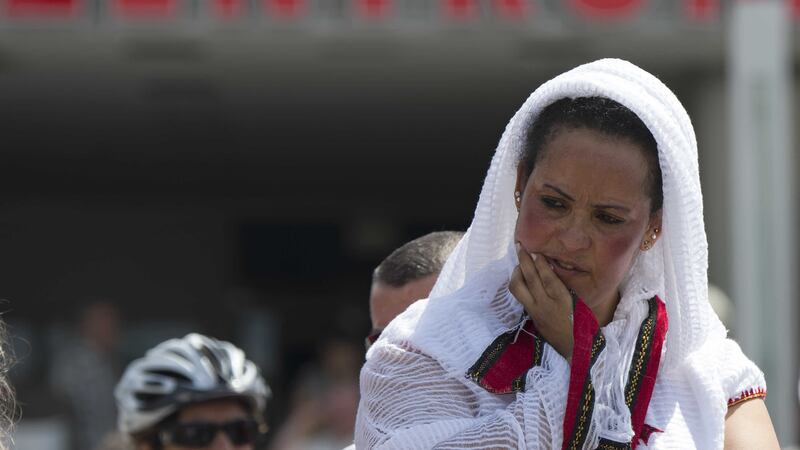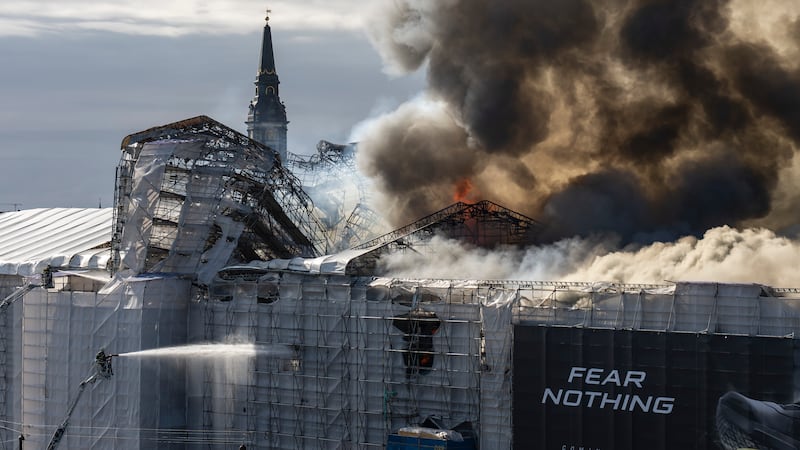A TEENAGE friend of the gunman who killed nine people in Munich has been arrested by German police.
It has been reported that the 16-year-old might have known of the deadly plans by an 18-year-old German-Iranian, identified only as David S due to German privacy laws but named in some media reports as Ali Sonboly.
The 16-year-old boy reportedly went to police himself after the deadly rampage.
The teenage gunman who killed nine people and left 27 others was a withdrawn loner who had been planning the attack for up to a year, German authorities said.
Officials said he had been a victim of bullying who suffered from panic attacks set off by contact with other people.
The teenager had been seeing a doctor for treatment over a number of psychiatric problems which began in 2015 with inpatient hospital care, followed up with outpatient visits.
Officers said medication for his problems had been found his room. Toxicological and autopsy results are still not available, so it is not yet clear whether he was taking the medicine when he embarked on his shooting spree on Friday.
Investigators said the gunman had been bullied by schoolmates at least once four years ago, and had been fascinated by previous mass shootings.
None of the bullies were among his victims, however, and none of those killed were known to him.
The attack took place on the fifth anniversary of the killing of 77 people by Norwegian right-wing extremist Anders Behring Breivik, whose victims included dozens of young people.
Investigators said the Munich gunman had researched that slaughter online and had visited the site of a previous school shooting in the German town of Winnenden last year.
Robert Heimberger, Bavaria's top official, said: "He had been planning this crime since last summer", citing a "manifesto" linked to the shooting found in the gunman's locked room in the apartment he shared with his parents and brother.
Mr Heimberger said he could not reveal details of the document yet because there are "many more terabytes" of information to evaluate, but described the gunman as a "devoted player" of group internet "killer games", pitting virtual shooters against each other.
Weapons are strictly controlled in Germany and police are still trying to determine exactly how the teenager obtained the Glock 17 used in the attack.
Mr Heimberger said it is "very likely" the suspect purchased the weapon illegally online on the "dark net," a restricted access computer network often used by criminals.
He said the weapon had been rendered unusable and sold as a prop before being restored to its original function.
The gunman's father saw a video of the start of his son's rampage on social media and spoke to police as it was taking place, Mr Heimberger said, adding that the family was not yet emotionally up to questioning by police.
Witnesses claimed the gunman shouted slurs against foreigners, even though he himself was the German-born son of Iranian asylum-seekers
Mr Heimberger said the McDonald's restaurant where most of the victims died was a hangout for youths of immigrant backgrounds, and the dead included victims of Hungarian, Turkish, Greek, and Kosovo Albanian backgrounds, as well as a stateless person.
The restaurant remained cordoned off on Sunday as nearby residents and relatives of the victims gathered for a second day to pay their respects.
In the aftermath of the attack, Bavaria's top security official urged the government to allow the country's military to be deployed in support of police during attacks.
Because of the Nazi era, Germany's post-war constitution only allows the military, known as the Bundeswehr, to be deployed domestically in cases of national emergency.
However, state interior minister Joachim Herrmann told the Welt am Sonntag newspaper that the regulations are now obsolete, declaring that Germans have a "right to safety".
"It would be completely incomprehensible ... if we had a terrorist situation like Brussels in Frankfurt, Stuttgart or Munich and we were not permitted to call in the well-trained forces of the Bundeswehr," he said.




